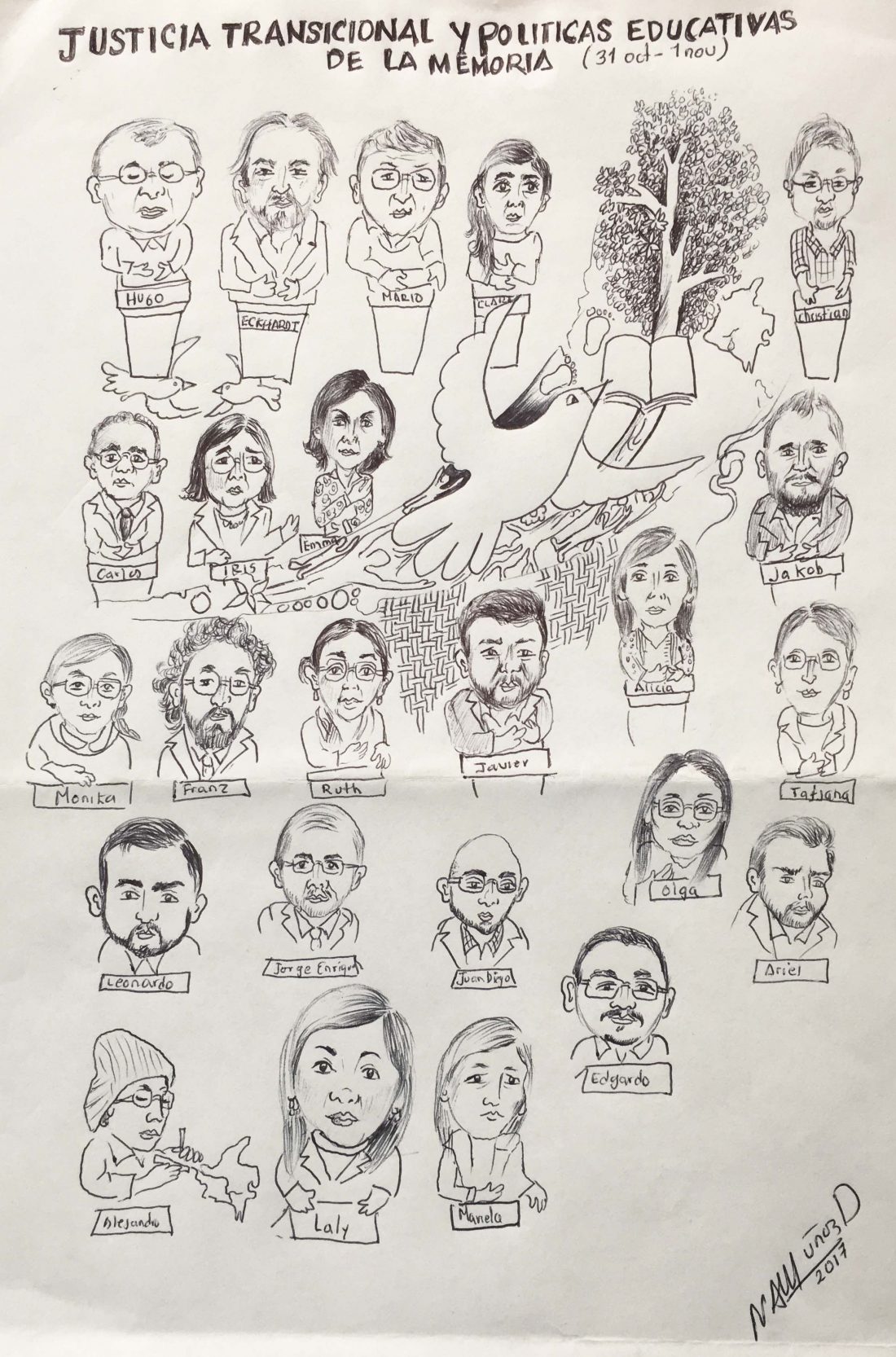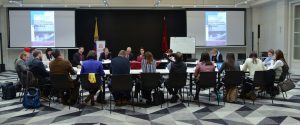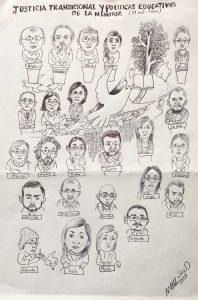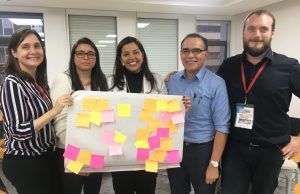
Report of workshop on Transitional Justice and Education Policies for Memory
Researchers of CAPAZ exploratory study presented their report of the Workshop on Transitional Justice and Education Policies for the Memory, which took place from October 31th to November 1st 2017 in Bogotá, Colombia.
The workshop was part of the CAPAZ exploratory study lead by researchers of the Freie Universität Berlin, Universidad de Los Andes and Universidad del Rosario, founding Universities of the CAPAZ Consortium. Another institution participating is the Georg Eckert Institute.

The collaborators discussed in three panels and a workshop the role of memory and education in the peace process. / Luis Enrique Sierra.
History and Education from a global perspective
The participants analyzed how history and conflict are presented in school books. They also emphasized the importance of transitional justice in public education policies and the significance of education in democratization programs of multilateral organizations.
Focus Latin America and Colombia
The workshop focused on the analysis of specific cases in Latin America and Colombia. Latin American societies in conflict and post-conflict situations face tensions between traditional teaching and alternative forms to tell history.

Civic competences and empathy are necessary in the process of historic memory construction. / La tercera mirada.
The panelists highlighted the value of the pedagogy in memory, the pedagogic role of victims and the dialogue among generations and institutions. Panels also were focused on tensions between “personal memory” and “official construction of memory and identity”.
The Colombian case motivated discussions about the construction of a regional identity in the peace processes. Experts also drew attention to involve higher education institutions in the narration of history. The international panelists recommended considering structural aspects of the Colombian conflict and strengthening the dialogue among government institutions.
Deficits, opportunities and challenges in the peace agreement
The program of the workshop also analyzed the role of education and education policies for memory within the peace agreement signed by the Colombian government and the FARC-EP. Participants identified central problems to be solved in Colombia, such as the gap in educational supply between countryside and urban areas, the urgency of articulating the peace agreement to basic and higher education systems and the environment of interpersonal violence at the schools.
The experiences of teachers in regions affected by the conflict
The workshop highlighted the role of teachers and family. Two testimonies enriched the discussion. The teachers Néstor Aurelio Muñoz (Department of Nariño) and Edgar Romero (Department of Bolívar) showed their personal commitment to assume new challenges presented in the conflict-ridden regions of Colombia.

The workshop ended with a collaborative exercise with the participation of all contributors. / La tercera mirada.
The teachers highlighted the necessity of their students to talk about the conflict and the impact it had in their lives. They also focused on the importance to involve children and teenagers as builders of their personal history, considering the sociocultural features of their communities.
…..



